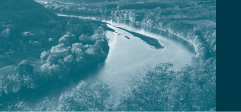Encourage zoning code and business licensing to protect and preserve sources of drinking water
Action
Under the Safe Drinking Water Act, public water systems must meet federal drinking water safety standards. If the source water does not meet the federal standards, consumers must pay for drinking water treatment. But anthropogenic contamination can be prevented through state and local zoning code and business licensing. Governments can do this by prohibiting the location of certain facilities or the conduct of certain activities within sensitive aquifer-recharge areas or near surface waters used as drinking water supplies.
State and local authorities can also require more efficient use of water resources, such as recycling and use of water-efficient household items and irrigation devices. Since many activities, particularly those of small businesses, fall outside the jurisdiction of federal environmental programs, state and local authorities must assume the responsibility to fill in the gaps if they do not wish to leave drinking water sources unprotected.
Process
Local governments, water system managers, and other community leaders should identify and map all sensitive water sources and delineate the land areas that can affect them. The information should then be used during master plan reviews and general business licensing updates.
Governments should calculate the cost of treating water that is likely to be contaminated by current and prospective business practices, including agricultural practices. They should also assess the sustainability of existing sources of drinking water, determining how much water there is, how fast it is being used and how long it will last. They should then provide these analyses to elected leaders, land-use decision makers, and stakeholder groups for use in reviewing master plans or in developing business-licensing procedures.


